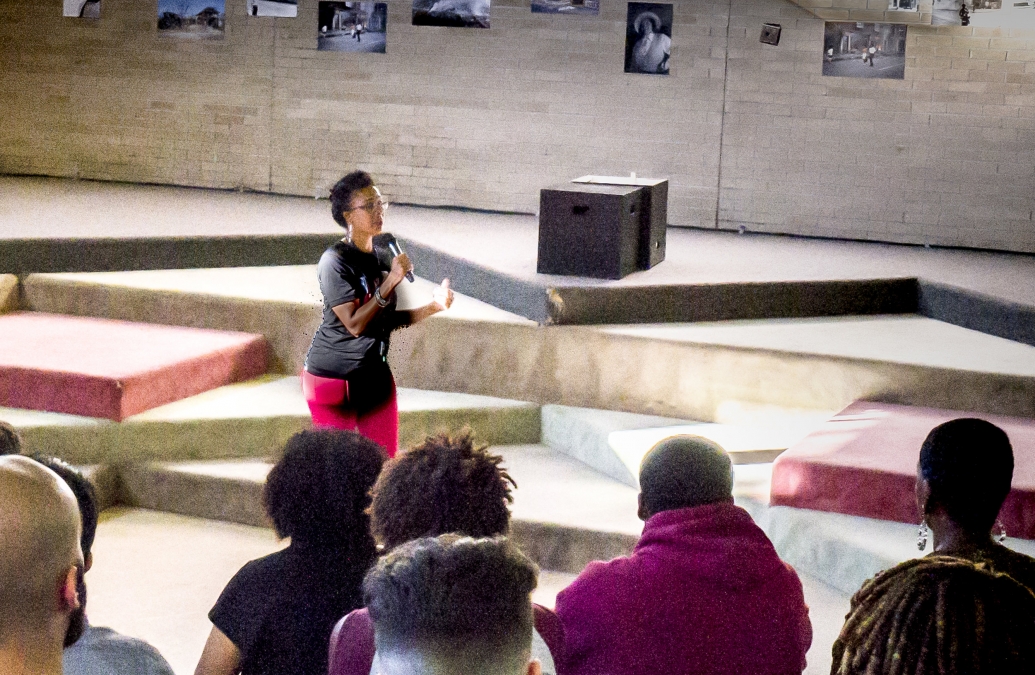Engaged Faculty Spotlight: Prison Reform and Incarceration

Dr. Lisa Biggs. Photo credit: Mark Sullivan.
Over the past forty years, the U.S. has seen a significant increase in incarceration rates with alarming racial disparities. Faculty at Brown, such as Dr. Lisa Biggs and Brad Brockman, J.D, M.Div, are challenging the ways in which we view and question the American carceral state. Through their innovative and engaged scholarly endeavors, they are calling for an ethical inquiry into what comprehensive and ethical justice reform entails.
Dr. Lisa Biggs, Assistant Professor in the Department of Africana Studies/Rites and Reason Theatre, is an artist and scholar deeply interested in the role of the arts and performance in movements for social justice. Her monograph, tentatively titled "Black Feminist Theatre for Incarcerated Women in the Age of Mass Incarceration," records and theorizes the impact of theatre programs for incarcerated women in the U.S. and in South Africa, and is under contract with the Ohio State University Press (anticipated in 2021). Dr. Biggs’ research on the impact of arts programs for incarcerated women relies heavily upon critical performance ethnography, which she incorporated alongside oral histories in her most recent creative work, "After/Life," a new play about the 1967 Detroit rebellion. At Brown, Dr. Biggs has taught a course for undergraduates which interrogates the U.S. criminal legal system from Black, feminist, and LGBTQ perspectives, and has offered a graduate seminar in Black expressive cultural practices. Most recently, Dr. Biggs gave a presentation at the Center for the Study of Race and Ethnicity in America (CSREA) on her work on black women, prisoner art, and transformation in which she sought to unpack contemporary ideas about the causes of women’s crime and encouraged the audience to reflect on the role of the arts in prisoner rehabilitation.
Brad Brockmann, J.D, MDiv, is an Assistant Professor in the Department of Health Services, Policy, and Practice at the School of Public Health. His work focuses on bringing a public health lens to the country’s epidemic of incarceration, which is a direct result of the historic failure to provide health coverage to low-income individuals to treat mental health and substance use disorders and instead criminalize these populations. His courses such as "Incarceration, Disparities, and Health" and "Designing Education for Better Prisoner and Community Health," provide opportunities for student training and engagement in justice issues as well as work on projects that respond to the intersections of criminal justice, public health, poverty, and race. His 2016-2017 TRI-Lab was a multi-semester engaged scholarship course and laboratory that prepared students to design, prototype, and implement health education programs that target health literacy issues often encountered by justice-involved individuals (including current and former prisoners) and other low-income, underserved populations. Professor Brockmann has also conducted research and given presentations on the challenges facing LGBTQ+ youth inside and outside of prison. He frequently collaborates with local and national justice system stakeholders to identify and support projects and policies that center the health of those most deeply affected by the carceral state both behind the walls and in the community.
